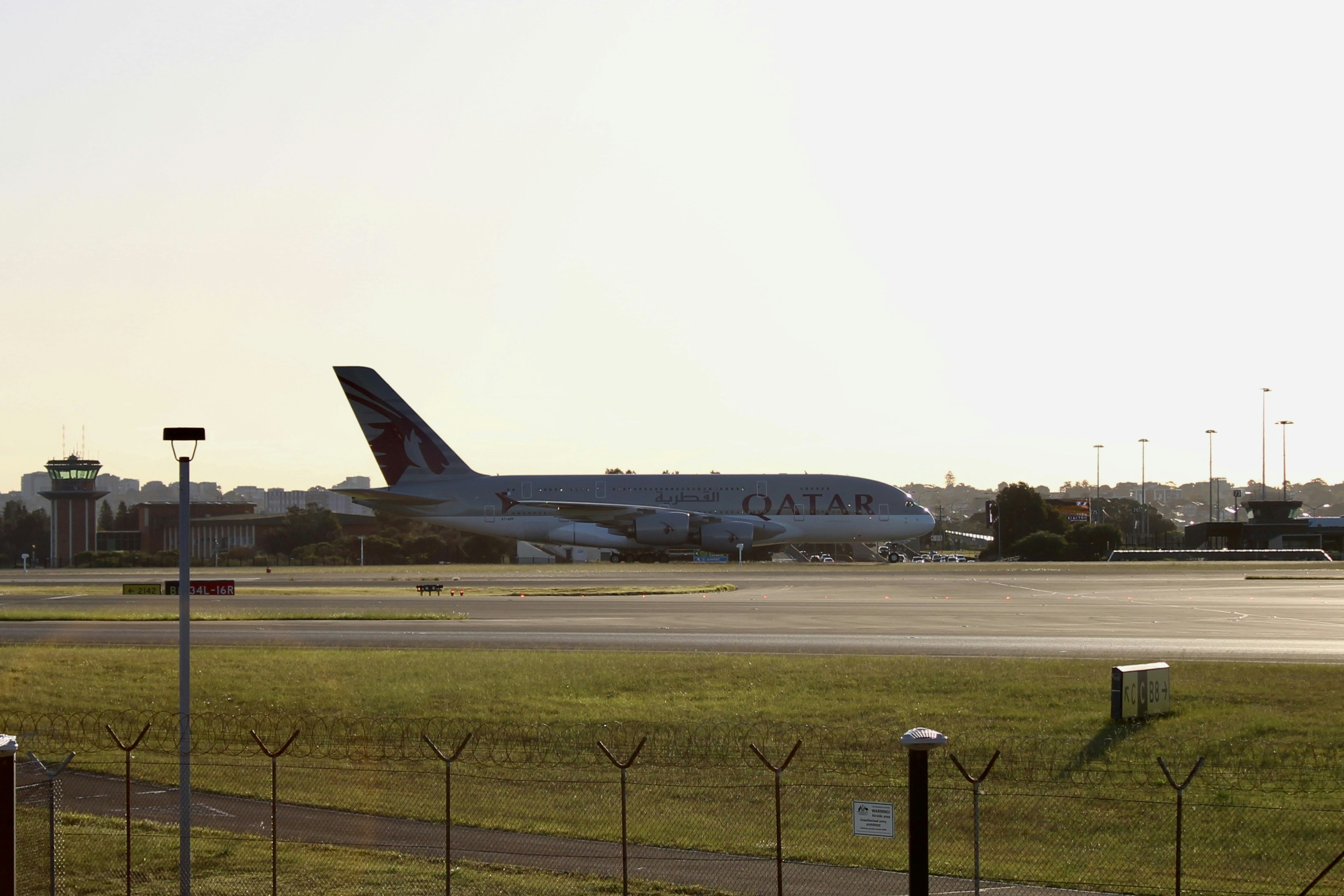Introduction
The recent announcement made by U.S. Defense Secretary Pete Hegseth regarding the establishment of an air force facility at Mountain Home Air Force Base in Idaho marks a significant milestone in U.S. and Qatari military relations. This strategic move underscores Qatar’s growing role as a key ally in the Middle East and highlights its commitment to strengthening defense capabilities in collaboration with the United States.
This agreement not only enhances military cooperation between Qatar and the U.S., but also serves as a testament to the long-standing partnership founded on mutual interests in regional stability and security. The facility at Mountain Home Air Force Base is expected to host various operational aspects of the Qatari Air Force, thus promoting interoperability between the two nations’ air forces. Such a collaboration is particularly critical given the evolving geopolitical landscape in the region, where security challenges are increasingly complex and require coordinated responses.
Qatar’s decision to expand its defense footprint outside its borders reflects a broader strategy of modernizing its military forces and enhancing its operational capabilities. By establishing this facility in Idaho, Qatar is also diversifying its training and operational environments, allowing for a more versatile and effective air force. This development is expected to provide valuable training opportunities for Qatari pilots and ground personnel, fostering enhanced skills that will benefit regional security efforts.
As we delve further into this partnership, it is important to consider both the strategic implications for U.S. military interests in the region and the potential benefits that Qatar stands to gain from such an arrangement. The establishment of an air force facility at Mountain Home Air Force Base not only solidifies Qatar’s position within the broader security architecture of the Gulf region but also exemplifies the deepening ties between these two nations.
Details of the Agreement
The recently announced agreement between Qatar and the United States to establish an air force facility at Idaho’s Mountain Home Air Force Base signifies a noteworthy strategic partnership. The intention behind this facility is to enhance training and operational capabilities for the Qatari Air Force. This development aligns with Qatar’s broader defense strategy, which aims to strengthen its military presence and capabilities in line with international standards.
During the announcement, both Hegseth and Qatari Minister of Defense Sheikh Saoud bin Abdulrahman Al Thani emphasized the importance of this collaboration. Hegseth articulated that the facility would serve as a state-of-the-art training environment equipped with advanced technology designed to simulate various combat scenarios. This element is particularly crucial for Qatar, as it seeks to modernize its air force to meet contemporary security challenges within the region.
Furthermore, the facility is expected to incorporate several vital features, including classrooms for tactical instruction, high-tech simulators for flight training, and ample hangar space for Qatari aircraft. The anticipated timeline for the construction of this facility aims for completion within the next two years, which reflects an expedient approach to enhancing operational readiness and reinforcing ties between the U.S. and Qatar.
In their statements, both officials underscored the mutual benefits of this agreement, noting that it will not only strengthen Qatar’s defense capabilities but also contribute to the regional stability that aligns with U.S. interests. This facility at Mountain Home Air Force Base is poised to become a significant asset in Qatar’s military development, further fostering cooperation between the two nations in defense and security matters.
Training and Interoperability
The establishment of an air force facility at Idaho’s Mountain Home Air Force Base marks a significant step in fostering enhanced training opportunities for the Qatari Air Force. By facilitating joint exercises between Qatari pilots and their United States counterparts, this initiative aims to refine combat readiness and operational efficiency for both nations. Such collaborative training serves as a vital mechanism in developing a robust and interoperable military framework, which is increasingly necessary in today’s dynamic geopolitical climate.
Qatari pilots will have access to a wide range of training programs, including live-fly exercises, simulation-based drills, and tactical awareness courses. These programs will not only incorporate contemporary air combat strategies but also emphasize the adoption of advanced technology and methodologies utilized by the U.S. Air Force. By participating in these exercises, Qatari personnel will gain invaluable hands-on experience and insights into U.S. military protocols, ultimately leading to improved operational capabilities.
The benefits of such collaborative training are multifaceted. First, it enhances military readiness by ensuring pilots are trained in diverse scenarios and environments, thereby equipping them to handle various operational challenges effectively. Second, the integration of training activities allows both air forces to exchange knowledge and expertise, facilitating a better understanding of each other’s strengths and weaknesses. This knowledge exchange is crucial as it nurtures adaptability and operational synergy crucial for joint missions.
Furthermore, the establishment of a training facility in Idaho signifies a broader commitment to a strategic partnership between Qatar and the United States. It highlights the significance of ongoing collaboration in defense, fostering peaceful coexistence while enhancing collective security arrangements in the region. The interoperability achieved through such joint training exercises will ultimately strengthen both air forces, ensuring they can operate seamlessly during collaborative missions.
Strategic Significance of the Location
The decision to establish a Qatari air force facility at Idaho’s Mountain Home Air Force Base is underpinned by several strategic factors that enhance its potential utility. Geographically, Mountain Home is favorably located in the western United States, providing proximity to the Pacific theater while still being well-positioned for operations directed towards the Middle East. This location offers Qatari forces an opportunity to conduct operations and training exercises in an environment that simulates various combat scenarios effectively, facilitating readiness for deployment in diverse geographic contexts.
In addition to its geographic advantages, Mountain Home Air Force Base boasts a well-developed infrastructure that can accommodate advanced military aircraft and support systems. The base is home to a robust network of maintenance facilities, runways, and logistical support capabilities that meet the operational requirements of modern air forces. The existing infrastructure not only minimizes the need for significant investment in new facilities but also allows for rapid integration into U.S. military operations, thereby enhancing interoperability between Qatari forces and American personnel. This is particularly critical given the historical precedent of foreign military presence at this base, which has previously hosted various international training programs and exercises.
The implications of establishing a Qatari air force presence at Mountain Home extend beyond mere operational readiness. It signals a commitment to strengthening military ties between Qatar and the United States, bridging geographic distances that often challenge security cooperation. The facility could serve as a strategic hub for joint military operations and training, reinforcing U.S. military strategy that emphasizes partnerships with nations within the Gulf region. This collaboration is significant for collective security efforts and assures allies that Qatar plays a proactive role in regional stability.
Qatar’s Military Expansion Goals
Qatar has been strategically enhancing its military capabilities in recent years, reflecting its ambition to establish a more robust defense posture in a volatile regional landscape. This evolution is characterized by an integrated approach combining modernization of existing forces, acquisition of advanced weapon systems, and international partnerships aimed at bolstering its defense infrastructure. The recent decision to build an air force facility at Idaho’s Mountain Home Air Force Base is a significant component of its expansion strategy, further solidifying Qatar’s commitment to enhancing its military readiness and operational effectiveness.
One primary objective of Qatar’s military expansion is to diversify its defense partnerships and to strengthen ties with key allies such as the United States. By investing in the establishment of military facilities abroad, Qatar aims to facilitate improved training, operational collaboration, and technology transfer. Such partnerships not only reinforce Qatar’s security but also align with the broader U.S. defense strategy in the Middle East, promoting stability in the region. Central to this objective is the recognition that an effective military force must be supported by strong international alliances, which also acts as a deterrent against potential threats.
Furthermore, Qatar’s defense strategy includes leveraging advanced technologies and modern warfare capabilities to address asymmetric threats. The establishment of the air force facility at Mountain Home serves as a strategic platform for training and operational exercises that will enhance the capabilities of the Qatari Air Force, ensuring it is equipped to respond effectively to various regional challenges. Ultimately, Qatar’s military expansion efforts position it as a formidable regional player, capable of safeguarding its sovereignty while contributing to coalition efforts in maintaining regional peace and security.
Previous Instances of Foreign Military Presence in the U.S.
Throughout history, the United States has hosted various foreign military operations and training exercises, reflecting its commitment to international military cooperation and partnership. One noteworthy example occurred with the Singaporean Air Force, which has established a significant presence at the Mountain Home Air Force Base in Idaho. Since the mid-1990s, Singapore has participated in various training programs, allowing its pilots to enhance their skills through joint exercises and shared resources with the U.S. military. This collaboration underscores the strategic importance of the base and highlights the benefits of joint training environments.
Additionally, Mountain Home Air Force Base has welcomed air force personnel from other nations, including Australia and Canada, which have engaged in both training exercises and maintenance missions. These operations typically involve a combination of operational training and community engagement, allowing foreign personnel to integrate and collaborate with U.S. forces while fostering relationships that enhance regional security and operational effectiveness.
The presence of foreign military forces within the U.S. is not restricted to any single base, as various installations across the country have similarly welcomed international troops. The unique geographic and operational landscape of the U.S. supports diverse training needs, contributing to the professional development of foreign military personnel. This aspect of military cooperation fosters mutual understanding and respect among allied nations, strengthening diplomatic ties in an ever-evolving global security environment.
The forthcoming establishment of a Qatari air force facility at Mountain Home Air Force Base adds a new chapter to this narrative. By integrating additional international military personnel into the existing framework, the U.S. can further bolster partnerships in the Middle East and enhance operational readiness. This strategic move exemplifies how such collaborations can yield benefits for all parties involved, capitalizing on shared capabilities and resources to advance common objectives.
Potential Economic Impact
The decision to establish a Qatari air force facility at Mountain Home Air Force Base in Idaho is poised to generate significant economic implications for the region. The investment from Qatar represents not only a commitment to military cooperation but also a substantial financial influx that can stimulate the local economy in various ways. Job creation is one of the most immediate benefits that can be anticipated. The construction and operational phases of the facility are likely to require hundreds of skilled and unskilled labor positions, providing employment opportunities for local residents and attracting workers from nearby areas.
Moreover, the establishment of this facility will necessitate investment in local infrastructure. This may include not only enhancements to the airbase itself but also improvements to transportation, utilities, and public services to accommodate the expanded activities. Such developments often have a multiplier effect, where investments lead to further growth across sectors, fueling construction jobs and related industries in Idaho. This additional funding can benefit essential local services, creating a well-rounded economic boost in the area surrounding Mountain Home.
Another avenue through which the Qatar facility could uplift Idaho’s economy is by providing increased business opportunities for local enterprises. Restaurants, hotels, and retail establishments may see a rise in revenue due to the potential influx of personnel and their families, along with contractors and vendors who support the base’s operations. Local businesses can leverage these opportunities to expand, hire more employees, and increase their service offerings. Overall, the partnership with Qatar promises a ripple effect of economic benefits that extends well beyond the airbase itself, positively impacting the community and solidifying Mountain Home as a key player in global defense collaboration.
Public Reception and Concerns
The announcement of Qatar’s plans to build an air force facility at Mountain Home Air Force Base in Idaho has elicited a wide range of reactions from various stakeholders, including military experts, local residents, and policymakers. Military analysts have expressed cautious optimism regarding this collaborative effort, suggesting that it could enhance operational readiness and strategic partnerships between the United States and Qatar. They argue that such an initiative fosters interoperability and strengthens allied forces, which are critical in addressing emerging global threats.
Conversely, local residents have voiced mixed feelings about the foreign military presence in their community. Concerns about the potential for increased military activity and the implications for local safety have been voiced in town hall meetings. Some residents worry that the establishment of a foreign air force facility might lead to a change in the community’s character or inadvertently draw the region into international conflicts.
Policymakers have taken note of these sentiments, balancing the strategic advantages of the partnership with the concerns of their constituents. Some local leaders emphasize the economic benefits that could arise from the presence of a Qatari air force facility, such as job creation and increased funding for local infrastructure. However, they also acknowledge the apprehensions surrounding national security and the impacts that foreign military installations may have on local governance and culture.
This delicate balance between welcoming international collaboration and addressing the concerns of community members reflects the complexities of U.S. foreign policy today. As the dialogue continues, it is essential for stakeholders to engage in transparent communication, ensuring that the benefits of such a strategic move do not overshadow the legitimate concerns expressed by the Idaho community. In summary, while the relationship between Qatar and the U.S. military may promise significant strategic advantages, it is crucial to address the diverse opinions and concerns of those affected by this shift in military dynamics.
Future Outlook for U.S.-Qatar Relations
The agreement for Qatar to build an air force facility at Idaho’s Mountain Home Air Force Base marks a significant development in U.S.-Qatar relations. This collaboration demonstrates the enduring partnership between the two nations, particularly concerning military cooperation and regional security. As one of the most influential players in the Gulf region, Qatar’s strategic investments in enhancing its defense capabilities are indicative of a robust commitment to maintaining stability amid the fluctuating geopolitical landscape.
Looking ahead, this agreement may pave the way for increased joint military exercises, further solidifying the operational readiness of both the U.S. and Qatari forces. Such exercises could not only enhance tactical proficiency but also foster greater interoperability between military units, especially in joint operations aimed at addressing shared threats in the Middle East. As Qatar continues to play a pivotal role in regional affairs, the potential for collaborative training initiatives may expand, extending beyond traditional combat scenarios to include humanitarian assistance and disaster response missions.
Moreover, the partnership is likely to foster broader commitments to security cooperation. With the increasing complexity of regional conflicts, U.S. and Qatari leaders may seek to deepen their dialogue on security strategies and intelligence sharing. As both nations navigate the challenges posed by non-state actors and evolving threats, a united approach will be critical for ensuring regional stability. Qatar’s strategic relationships can also extend to other regional allies, potentially enhancing multilateral efforts to counteract threats within the Gulf.
In conclusion, the establishment of the air force facility marks not only an enhancement of bilateral ties but also a beacon for future collaborations that promise to advance U.S.-Qatar relations. With enduring commitment and constructive dialogue, a secure and stable Middle East may well be within reach.
About TodayResearcher
At TodayResearcher, we bring you stories that matter. Covering everything from breaking news and world events to lifestyle, entertainment, science, and culture, our editorial team is dedicated to delivering accurate, insightful, and engaging content. We aim to keep readers informed, inspired, and curious about the world around them.



